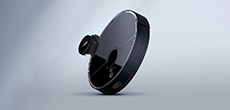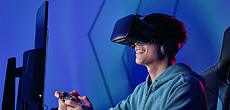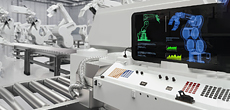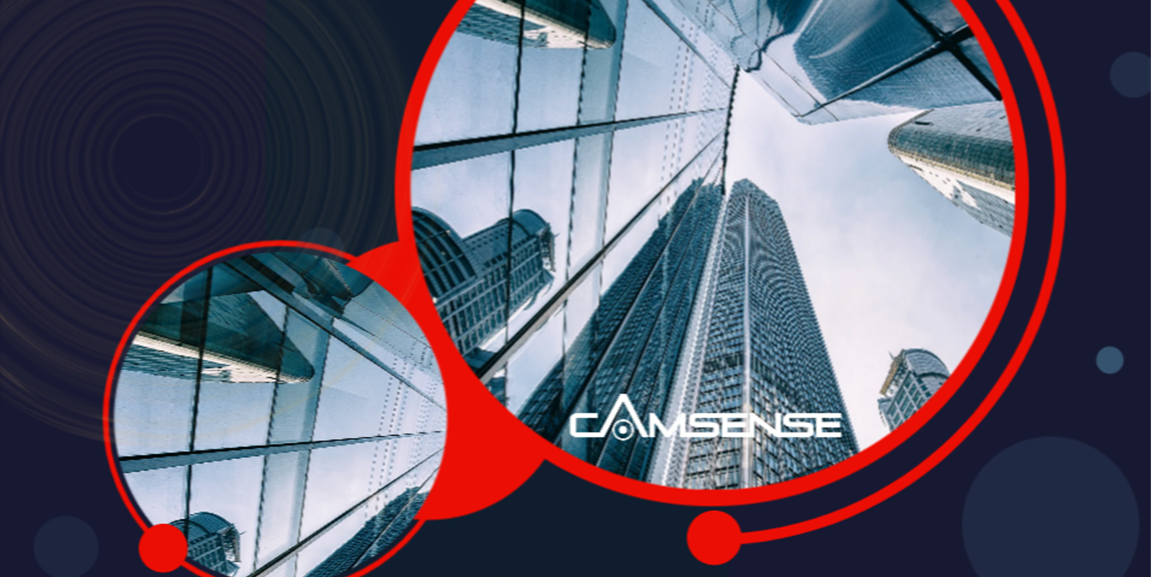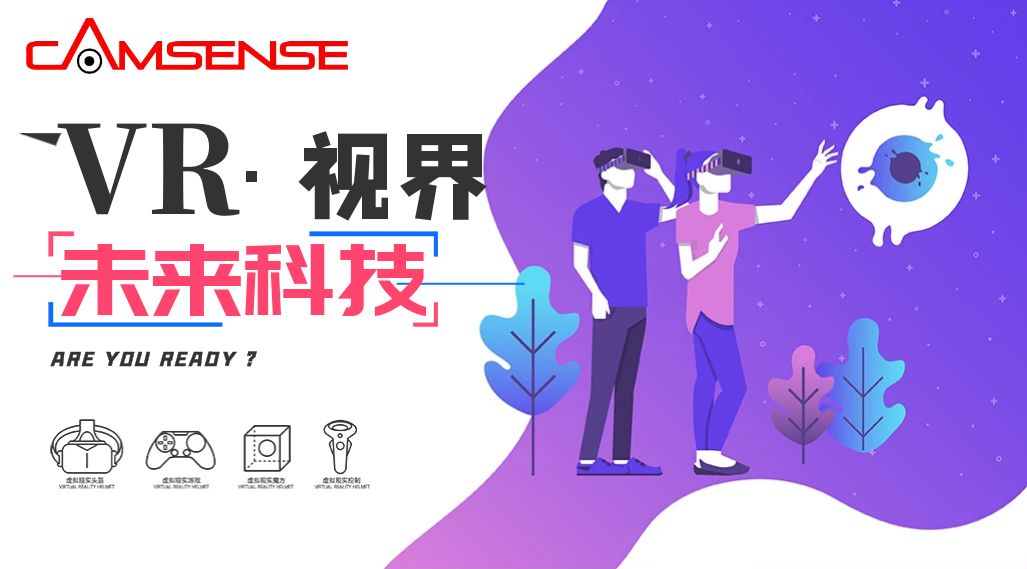Holding the myth of technology has no meaning, you have to bend over and squat down, let the technology industrialize, and have enough fear of the industry.
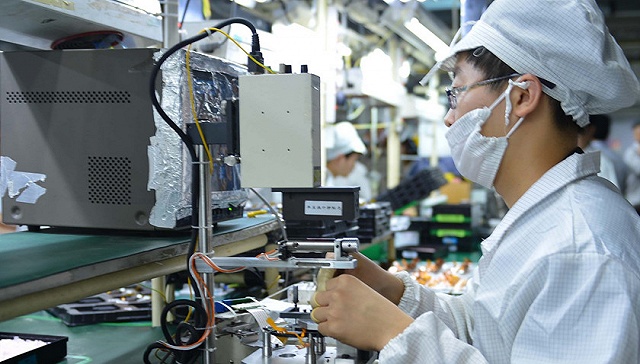
Photo via Visual China
At 3 pm, Christopher turned off the computer in the office on time. A few hours ago, he was still doing research on visual positioning technology in the laboratory. Before he could change the Ralph Lauren polo shirt he was wearing, he drove into the car and rushed from Nanshan, Shenzhen to the factory in Changan, Dongguan.
He's about to switch roles.
During the day, Christopher is the CEO of a visual sensor company in Shenzhen, where he leads the team to research cutting-edge visual positioning technology. The employees commented on him: elegant, a good gentleman, and a scholar.
In the afternoon, Christopher will become a foreman and participate in the production on the assembly line in Dongguan. The people in the factory had a different view of him, feeling that he was stern and tough.
Christopher is 40 years old this year. After graduating from Tsinghua University, he worked in the United States for a few years and decided to return to China to start a business. He is now accustomed to the daily role changes, although he occasionally jokes that the daily life of screwing screws is completely different from the entrepreneurship he envisioned.
An interesting phenomenon is that a number of such highly educated entrepreneurial groups have emerged in Shenzhen, who can enter the laboratory to do research, and can go to the factory to turn screws. As the industry chain becomes more and more mature and the competition becomes more and more fierce, "Nengwen Nengwu" has become the standard for hardware entrepreneurship in Shenzhen.
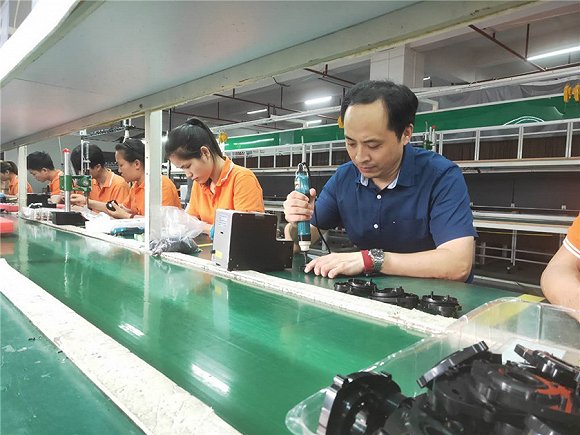
Christopher's work line in Chang'an, Dongguan
Christopher worked at Bell Labs in Chicago for two years after completing his undergraduate and master's degrees at Tsinghua University. The research directions of study and work include precision instruments, automation, image processing, etc.
In 2018, Christopher decided to industrialize the technology he was researching. He set up the business location in Shenzhen, and rented a production line in Chang'an Town, Dongguan, tens of kilometers away, to produce somatosensory cameras, lidar and other equipment. . The company has shipped hundreds of thousands of units, and TV companies, robots vacuum and other manufacturers are buying his equipment.
"You think you can do research quietly like a professor, but now most of the time you have to screw screws in the factory." Christopher told Jiemian News.
In the past few years, Shenzhen's hardware entrepreneurship has gone through an era of brutal growth. Consumer electronics such as watches, bracelets, selfie sticks and other assembly models have gradually disappeared, replaced by upstream industry chain projects with core technology thresholds, most of which It’s AI, sensors, chips, etc.
The hot science and technology innovation board data shows that among nearly 2,000 IPO projects entering the mentoring period, technology-based enterprises (including "high-end equipment, high-end technology, robots, integrated circuits, electronic software, medicine, biology, networks, new materials, new energy, medical medicine and intelligence”) had 729, accounting for nearly half.
This trend can also be seen from the projects selected for Tencent's AI accelerator. Most of the selected projects are those with highly educated founders and core technical advantages, covering areas such as unmanned driving, robotics, enterprise services, and medical care.
More and more highly educated people like Christopher come to the Pearl River Delta. They bring the technical theories and algorithms that they have devoted to researching for many years, and want to find opportunities to realize the opportunities in this fertile land with rich industrial facilities.
Although the manufacturing industry in the Pearl River Delta is developed, the factories are not ivory towers. Even if the technical theory is at the forefront, if the technology is to be realized, production is not an easy difficulty to overcome.
Chang Lin, a Ph.D. in computer science from Harbin Institute of Technology and CEO of Leju Robotics, said, “We are Ph.D.s. We really didn’t expect to end up in the factory. Last year, we suffered physical injuries in the factory.
Wang Yunlong, Ph.D. in physical acoustics at the University of Mississippi and CEO of GM Micro, said that when the factory was first built, workers were secretly playing with mobile phones on the production line, and it was much more difficult to manage a factory than to manage technicians.
For the vast majority of doctors, suits and shoes, and scenes full of sci-fi will be wiped out here, and there are only automatic production equipment and factory brothers and sisters on the assembly line. But this may be the closest opportunity to success, and no one wants to continue to hold it.
Blindly innovation or mass production?
Christopher worships Shenzhen DJI. The company's CEO Wang Tao quickly became a giant in the field of drones through Shenzhen's industrial chain with an absolute leading edge in flight control technology.
Christopher also once thought that with technology, everything could be swept away. He is working on visual positioning sensors that can be positioned precisely down to the sub-millimeter level, while also being able to locate within a large spatial range.
But those are not the most attractive places for customers who pay the bills.
A few years ago, when Christopher was developing a prototype, the core elements he cared about were measurement indicators such as distance, frame rate, and accuracy. As long as these values could surpass his peers, he would jump for joy.
But one day, when Christopher confidently showed the technical solution to the customer, the other party only replied: "I only care about whether this thing can be manufactured in batches and stably."
"I was stunned at the time. I couldn't understand what the customer was saying. What is batch stable manufacturing?" Christopher said.
Stable batch manufacturing is commonly understood as mass production. Before a product goes on the market, it will go through several stages such as R&D, testing, trial production, and mass production. Mass production means that a perfect fit has been formed between the product and manufacturing, and it can deliver products stably to customers.
Not long ago, Hu Boshan, executive vice president of vivo, told Jiemian News that when they purchased components, the first consideration was that they could technically achieve mass production, and then the price, because they were facing millions of consumption. However, stable technology is the most critical.
The person in charge of Tencent AI Accelerator told Jiemian News that in addition to mature technology, mass production of products is also an important factor that Tencent will consider for the projects they select and support, because Tencent will help AI entrepreneurial projects to draw more orders and help AI technology has landed in the industry.
But for Ph.D.s, this may be the toughest link. R&D technology can gain competitive advantage, but to truly transform it into a market advantage, it must have strong manufacturing capabilities that match it.
Foxconn is not everything
The quest for manufacturing has begun.
Foxconn and BYD are the first stops to manufacture in Shenzhen, but in fact, such large companies are not omnipotent. Foxconn, which is good at making mobile phones and computers, has little experience because of emerging equipment like the vision sensor made by Christopher.
"Foxconn also looks down on us. 1 million units is a big business in my opinion, and they can't even set up a project." Christopher said, he once thought about outsourcing manufacturing completely and let it go, but later found out that this is a Road that doesn't work.
For the simplest example, the parameters of the structure of the plastic shell in the product appearance can be modeled in 3D. However, when the mold is opened in the factory, it will be found that the shells interfere and block each other, which may require redesign adjustments.
If it can’t be built, it’s useless. If it’s unstable and it breaks down, it’s also useless.
When Christopher used to make thousands of samples during R&D testing, the selection of components was not considered too much. But now that a large number of devices are being produced, it becomes very prudent to replace a resistor or a plug.
"The standard of making 1,000 units is completely different from the standard of 10,000 units, and the standard of making 10,000 units and 100,000 units is completely different. This is what I have experienced the most." Christopher said.
Because when the output reaches a certain scale, even a single screw will cause a butterfly effect. For the producer, it will affect the whole body, so it is necessary to carefully select the supplier's products.
Christopher's approach is to sign stringent quality assurance agreements and unannounced inspection specifications with suppliers. Suppliers are responsible for compensation or fines if something goes wrong or is found to be non-compliant by unannounced inspections. The second is to develop a strict supplier review process, including surveys, inspections, etc. "It's a sharp sword for suppliers," Christopher said.
Being able to mass-produce is not the end. If the market demand is not accurately predicted, it will also be a huge disaster.
The main buyers of the lidar produced by Christopher are consumer electronics companies, which are characterized by cyclical changes in sales, not uniform shipments. prick".
"Twenty to 30,000 units in a few days, and 200,000 units in a large period. If we are required to supply 100,000 units a month, it will be a huge challenge for our production." Christopher said.
In the entire consumer electronics chain, component suppliers are in a relatively weak link. Purchasing customers in some industries may have a 6-month billing period from order placement to shipment.
If there is insufficient stocking, there are often two results: loss of market and no money; in addition, customers will question the company's ability to supply.
It's also a risk if you stock up too much. If the customer encounters market changes and suddenly reduces the order quantity during this period, it will form a backlog of inventory, which will have a great impact on the supplier's cash flow.
This may be the point that Christopher cares most about. Because Christopher's company was one of the suppliers that suffered during the famous LeEco crisis, he took it to heart and kept his manufacturing experience in mind.
Christopher recently put forward a request to the sales department, preferring to sacrifice profits, but also to reduce the account period as much as possible, otherwise it will increase the company's operating risks.
"I used to look down on the manufacturing industry and felt very low-end, but to be honest, now I think a company like Foxconn is really amazing." Christopher sighed after a series of "pits".
In January of this year, the high-precision positioning system developed by Camsense, which is the CEO of Christopher, passed the acceptance of the giant COMAC. This system combines the multi-sensor fusion technology independently developed by Camsense, which can realize real-time tracking of the six-degree-of-freedom state of the end of the manipulator in a large space, and achieve sub-millimeter-level precise positioning.
Talking about this big order, the annoyance in Christopher's eyes disappeared instantly.
The Silicon Valley model of acclimatization
"It is better to die in a suit than to live naked." Dr. Wang Yunlong recalled his entrepreneurial journey and concluded.
Wang Yunlong, 50 years old this year, met Jack Ma in the English Corner by the West Lake in Hangzhou in the early 1990s.
After that, he studied and worked in the United States for more than 20 years. He speaks fluent American English and has a deep American brand. In order to continue the American way of life, Wang Yunlong also put a treadmill at the door of the humble factory.
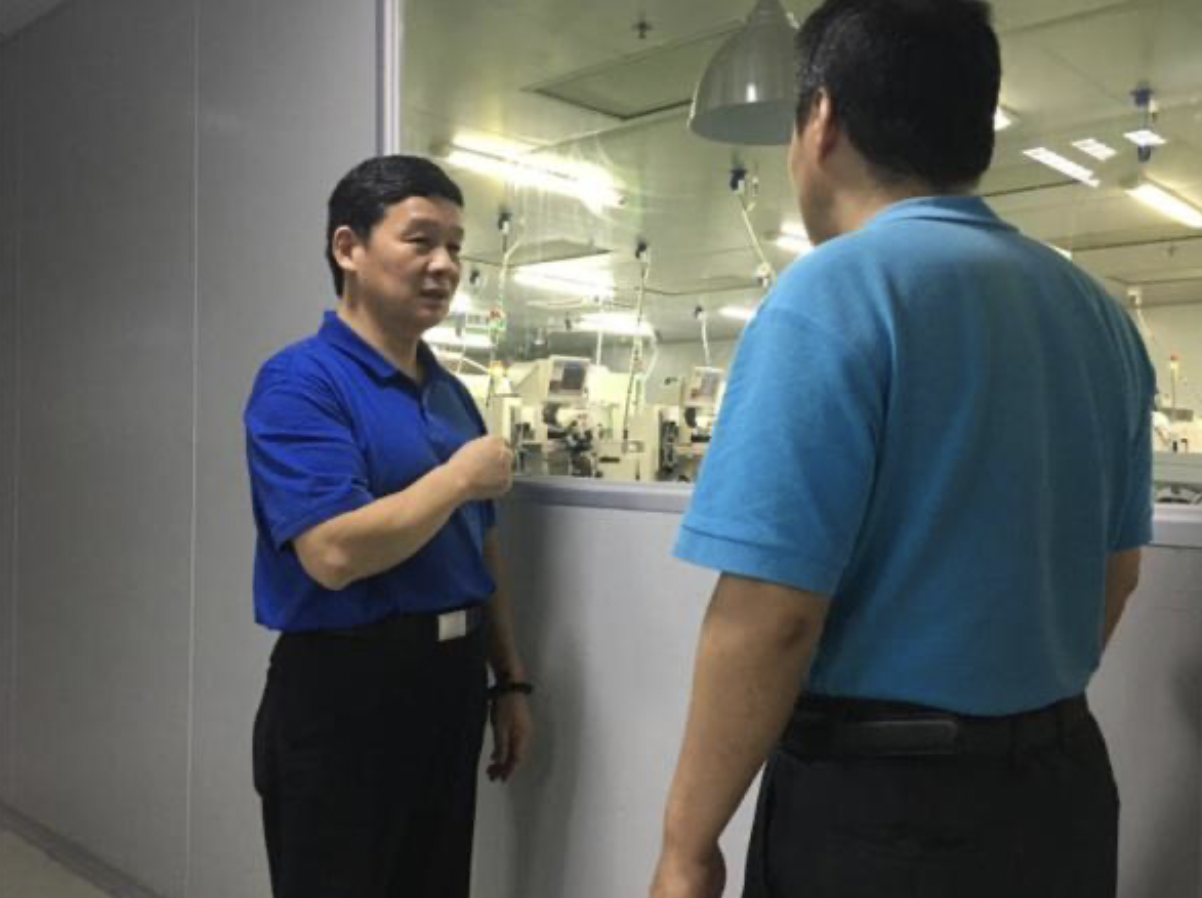
Dr. Wang Yunlong communicated with the production manager
The general micro-company products for which Wang Yunlong serves as CEO are divided into two categories: software and hardware. In terms of hardware, at present, the level of silicon microphones (miniature microphones manufactured by MEMS technology) produced by General Micro has reached the same level as the audio device manufacturers Knowles and Infineon, and it is also ahead of its peers in China. , mobile phones and peripheral products. Software products mainly include machine learning-based acoustic noise reduction technology and embedded far-field voice wake-up technology.
With years of accumulation of acoustic technology, Wang Yunlong came to Bao'an, Shenzhen in 2016 to build a factory.
In the United States, programmers in Silicon Valley are very free. They don’t need to punch in. It doesn’t matter if they work six or eight hours a day, as long as they complete tasks on time. This approach gives employees more freedom and maximizes the protection of their ideas.
Wang Yunlong took it for granted that "Silicon Valley Freedom" was copied to domestic factories. At first, he was complacent about his approach, but then he found that he was too naive.
"It can't be done according to the Silicon Valley model. In China, managers need to check whether employees have completed the prescribed tasks at every point, because they always have a lot of reasons to explain why they have not completed." Wang Yunlong said.
The Silicon Valley model is known for its freedom and flatness, where every employee can leapfrog and talk to the biggest boss about work issues. Therefore, Wang Yunlong once advocated with the workers in the factory that everyone can directly report anything to the boss.
After this rule was enacted, suddenly one day, a female worker knocked on Wang Yunlong's door. After entering, she cried and complained: "The people on the production line said my style was not right, how could they do this."
After that, more and more workers wanted to talk to Wang Yunlong about personal trivial matters. The lack of professionalization of domestic employees has made Wang Yunlong take up too much non-work-related psychological counseling work. This rule not only fails to improve work efficiency, but also makes him less disturbed.
The management of production line workers is also a big problem. For example, workers in the factory will secretly play with their mobile phones in places where the camera can't take pictures, but the production line cannot generate static electricity. In addition, after employees have problems on the production line, they may deliberately conceal them, not report them immediately, and finally miss the opportunity to remedy them.
The way of thinking of the post-95s and 00 employees is also incomprehensible to 50-year-old Wang Yunlong. "If you just leave suddenly, engineers can keep them with material rewards, but these young workers can't be tempted by material or by spirit." Wang Yunlong said.
As Dr. Chang Lin emphasized to Jiemian reporters many times in interviews, technology must be seen and touched by the public, and this technology is valuable.
